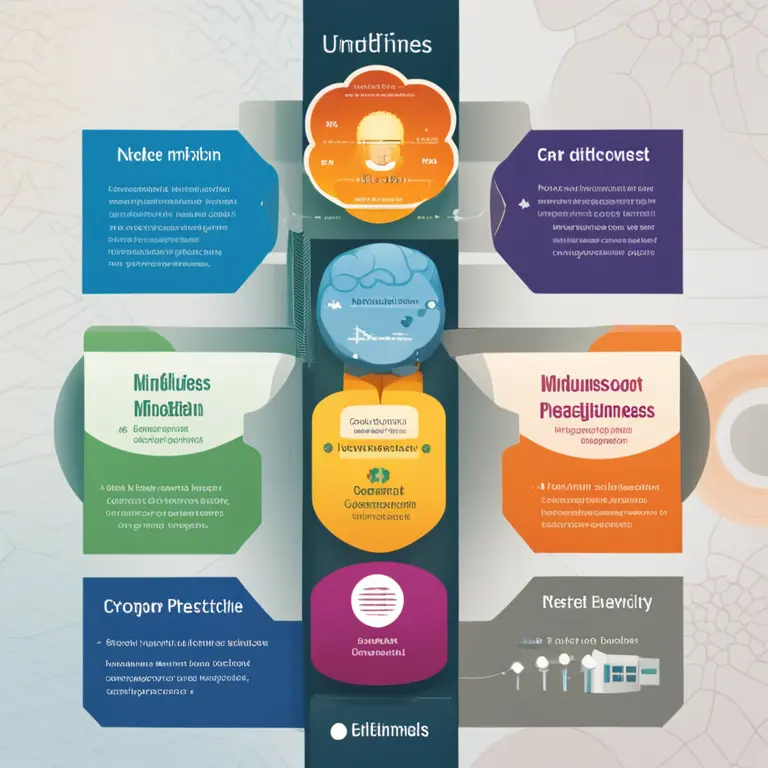
Mindfulness Meditation for Cognitive Agility
Discover how mindfulness meditation enhances cognitive flexibility, an essential skill for adapting to life's ever-evolving challenges.
article by Hina Kurosawa
Mindfulness Defined
Meditation and mindfulness have transcended their traditional spiritual contexts to become valued practices in the psychology and personal development spheres. Mindfulness is the practice of directing one's complete attention to the present moment, embracing it without judgment or distraction. It's a cognitive training that involves observing thoughts and emotions as they are, fostering a heightened state of awareness and presence. In an age dominated by constant stimuli and rapid technological change, mindfulness meditation provides a soothing oasis, retraining our brains to focus and remain adaptive.

Cognitive Flexibility Explained
Cognitive flexibility is the mental capacity to switch between thinking about two different concepts or to consider multiple concepts simultaneously. It is a critical determinant of our problem-solving abilities, helping us adapt to new information and changing environments efficiently. As we face complex societal shifts and an increased pace of living in 2024 and beyond, cognitive flexibility emerges as a significant asset for personal and professional resilience.

Linking Mindfulness with Cognitive Flexibility
Recent studies indicate a strong correlation between mindfulness practices and enhanced cognitive flexibility. Regular engagement in mindfulness exercises can lead to improved attention regulation, better emotion regulation, and increased metacognition. These benefits culminate in the ability to navigate life's challenges with greater ease and openness to new experiences. When we meditate mindfully, we not only reduce stress but also foster the brain's adaptability - a critical quality in our rapidly changing world.

The Science Behind the Practice
Neuroscientific research provides evidence of mindfulness meditation's impact on the brain regions associated with cognitive flexibility. These include the prefrontal cortex (key in decision-making and behavioral flexibility) and the anterior cingulate cortex (involved in attention strategies and error detection). Mindfulness can strengthen neural pathways, promote synaptic plasticity, and support the growth of new neurons, effectively remodeling the brain's architecture to enhance cognitive performance.

Integrating Mindfulness into Daily Life
Implementing mindfulness meditation into one's daily routine is more accessible than ever, with a plethora of digital tools and platforms arising in 2024 to aid this practice. From guided meditation apps to virtual mindfulness-based therapy sessions, there are numerous avenues for beginners and seasoned practitioners to improve their cognitive dexterity. Simple practices like focused breathing exercises, conscious sensory activities, and mindful movement can be seamlessly incorporated into daily living, fostering an enduring habit that nurtures cognitive agility.
Mindfulness for Tomorrow's World
In preparation for the complexities of the future, mindfulness meditation offers a proactive approach to maintaining mental acuity. Whether navigating the dynamics of interpersonal relationships, adapting to new career paths, or managing the stress of innovation, cognitive flexibility is becoming indispensable. By prioritizing meditation and mindfulness today, we can enhance our cognitive flexibility, ensuring we stay sharp, adaptable, and responsive to whatever the future holds.
Published: 1/18/2024
Modified: 1/18/2024
More predictions
Come back here soon to learn more about yourself and your future


Easing Pain With Mindfulness Meditation
Discover how meditation can be a powerful tool for pain management, offering natural relief and mind-body harmony.


How Meditation Reshapes Our Brains
Discover the transformative power of meditation and its profound impact on brain structure and function in this insightful article.


The Origins of Meditation: Tracing Its Historical Roots
Discover the historical origins of meditation, its transformation through time, and its profound impact on various cultures around the world in this insightful article.